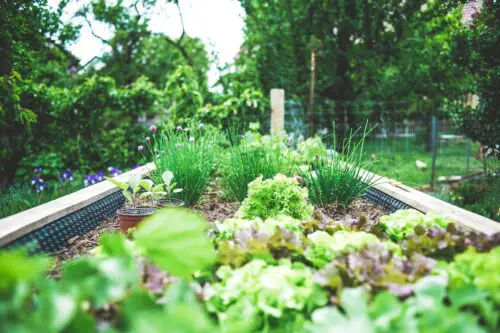Container gardening has emerged as a popular and versatile gardening practice, enabling individuals to cultivate plants in limited spaces such as balconies, patios, and even windowsills. This innovative approach to gardening not only adds aesthetic appeal but also offers a range of benefits for both seasoned gardeners and beginners. In this article, we will explore the world of container gardening, its benefits, essential considerations, plant selection, and maintenance tips to help you create a lush and thriving miniature garden oasis.
Benefits of Container Gardening
Container gardening presents a myriad of advantages, making it an ideal choice for those with limited space or mobility. Here are some key benefits:
1. Space Utilization
One of the primary benefits of container gardening is its ability to maximize space. Whether you reside in a compact apartment or have a small outdoor area, containers allow you to transform any available spot into a flourishing garden.
2. Flexibility and Mobility
Containers are incredibly versatile, enabling you to rearrange your garden as needed. This flexibility is particularly advantageous for those who rent their living spaces or wish to experiment with different layouts and designs.
3. Pest and Weed Control
Container gardening provides better control over pests and weeds compared to traditional gardens. By using fresh potting soil and maintaining a controlled environment, you can significantly reduce the risk of infestations.
4. Accessibility
For individuals with physical limitations, container gardening offers an accessible way to engage in gardening. The raised nature of containers minimizes the need for bending or kneeling, making it a suitable option for people with mobility issues.

Essential Considerations for Container Gardening
Before embarking on your container gardening journey, there are several key considerations to keep in mind:
1. Bed Selection
Choosing the right container is crucial for the success of your garden. Opt for containers with drainage holes to prevent waterlogging and ensure proper root aeration. Containers come in various materials, such as terracotta, plastic, and wood, each with its own set of benefits and considerations. If you’re looking for a raised garden bed that will last, check out Frame It All and their range of small planters.
2. Soil Mix
Selecting the appropriate soil mix is essential, as traditional garden soil may not provide the necessary drainage and aeration. A well-balanced potting mix enriched with organic matter can help promote healthy plant growth.
3. Sunlight Availability
Different plants have varying sunlight requirements. Before selecting your plants, assess the amount of sunlight your chosen location receives. Some plants thrive in full sun, while others prefer partial or even full shade.
4. Watering Routine
Container plants often require more frequent watering than plants in traditional gardens, as containers can dry out quickly. Establish a consistent watering routine, keeping in mind that overwatering can be just as harmful as underwatering.
Selecting Plants for Container Gardening
The success of your container garden depends largely on the plants you choose. Consider the following factors when selecting plants:
1. Size and Growth Habit
Opt for plants that suit the size of your container and their growth habit. Some plants, like compact herbs and ornamental grasses, are well-suited for smaller containers, while others, like dwarf fruit trees, require larger pots.
2. Compatibility
Select plants with similar water and sunlight requirements to ensure harmonious growth. Combining plants with contrasting textures and colors can create visually appealing arrangements.
3. Climatic Suitability
Choose plants that thrive in your local climate. While some containers can be moved indoors during colder months, it’s advisable to select plants that can withstand the typical weather conditions in your area.
Maintaining Your Container Garden
Proper maintenance is key to sustaining a thriving container garden. Here are some essential maintenance tips:
1. Fertilization
Container plants often require regular fertilization since nutrients in the potting mix can become depleted over time. Choose a balanced, slow-release fertilizer and follow the recommended application guidelines.
2. Deadheading and Pruning
Remove spent flowers and prune leggy growth to encourage new blooms and maintain the shape of your plants. This practice promotes healthy growth and prevents overcrowding.
3. Monitoring Drainage
Regularly check the drainage holes of your containers to prevent blockages. Proper drainage is essential for preventing root rot and other water-related issues.
4. Seasonal Care
Be prepared to adjust your gardening practices based on the changing seasons. Some plants may need to be brought indoors during winter, while others might require extra shade during scorching summers.
Conclusion
Container gardening opens up a world of possibilities for cultivating beauty in even the smallest of spaces. With careful planning, suitable plant choices, and consistent care, you can create a stunning and thriving garden that brings joy and tranquility to your surroundings. Whether you’re a seasoned gardener or a beginner, container gardening offers an accessible and rewarding way to connect with nature and showcase your creativity. So, gather your containers, select your favorite plants, and embark on a journey of growing beauty right at your doorstep.
